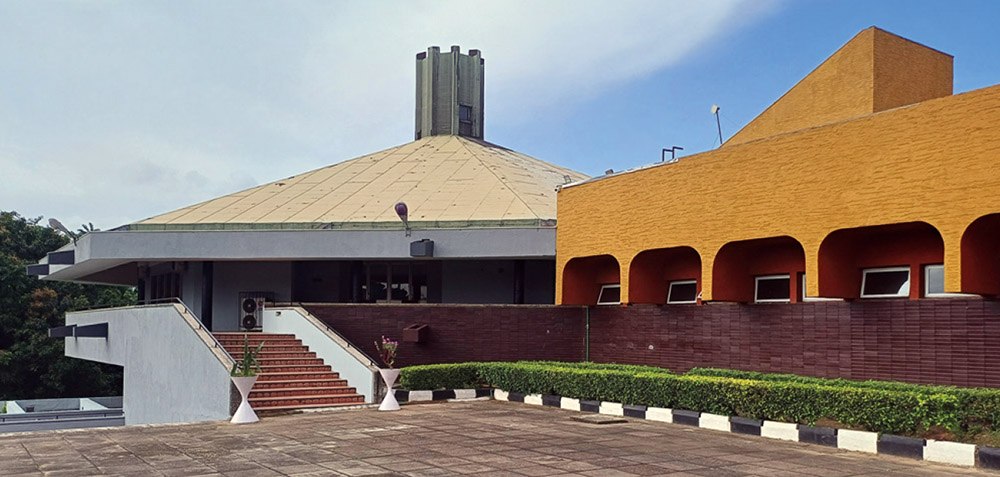An appraisal of a 2022 British Academy writing workshop of postgraduate students and researchers
Downloads
DOI:
https://doi.org/10.52200/docomomo.69.11Keywords:
Architectural styles, ECR, Modern buildings, University campuses, Writing workshopAbstract
This paper looks into the 2022 writing workshop sponsored by the British Academy with Nigerian and Ghanaian participants. It was focussed on the present status of modern buildings, which are quickly replaced by newer ones, eroding the prevailing vernacular of the landscape of African university campuses. A new approach was adopted to documenting the stories of these buildings, which had existed prior to the time, by Africans, not foreigners. Postgraduate students were co-opted to participate in a five-day writing workshop across three universities in Nigeria. The teams were headed by Early Career Researchers (ECRs) led by a Nigerian Co-Investigator (Co-I), similar to a workshop held in Ghana just a week before. The Principal Investigator (PI) was based in the United Kingdom and assisted by two co-investigators, one from Nigeria and one from Ghana. For the Nigerian contingent, the loci group comprised four participants per group (12 participants in each of the three universities in Lagos, Jos, and Enugu campus). At each university, the participants selected modern buildings on the campus to write about, guided by the ECRs. Scheduled meetings were arranged for expert presentations, site visits, and group meet-ups to discuss their working papers. Recommendations were made for architectural histories and criticisms to be introduced into the students’ curriculum, from which publications and documentation of these buildings can be carried out concurrently. Grants and awards can also be targeted at universities both locally and globally to further improve this approach. Emphasis on the cultural point of view was encouraged in the writing exercise to preserve the heritage aspects of the buildings.
How to Cite
Published
Issue
Section
License
Copyright (c) 2023 Adeyemi Oginni, Oluwaseyi Akerele, Ademola Omoegun, Nnezi Uduma-Olugu

This work is licensed under a Creative Commons Attribution 4.0 International License.





